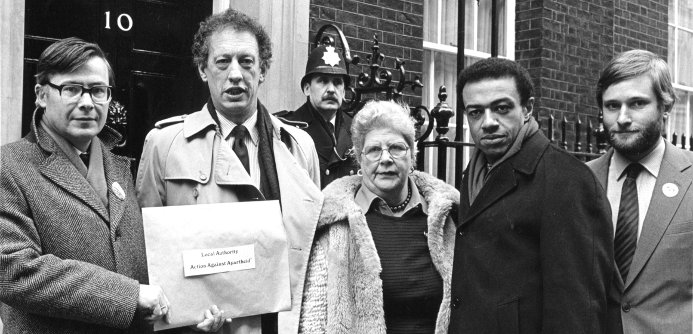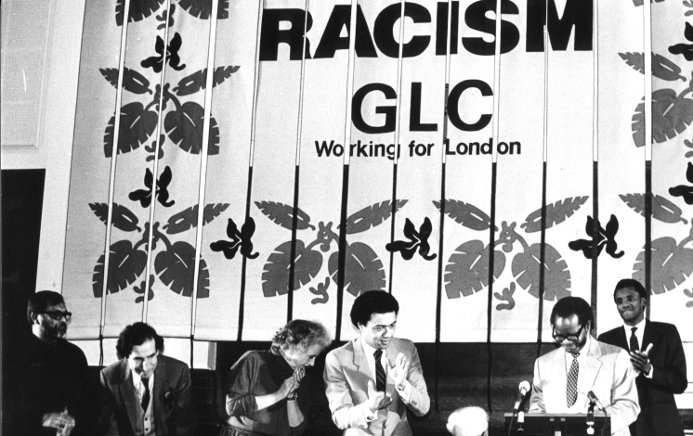COUNCIL BOYCOTTS
Many local councils boycotted South African products in the Boycott Movement’s March Month of Action in 1960, the first British boycott campaign. By the mid-1960s, 54 councils were banning goods from South Africa from their offices and schools, many of them in Wales. In Scotland, the huge Strathclyde Regional Council imposed a ban in 1975.
APARTHEID FREE ZONES
In 1981 Sheffield became the first local authority to pledge that it would end all links with apartheid. It withdrew pension fund investments from companies with South African subsidiaries and barred South African sports teams from its playing fields. Others followed, including Cambridge, Newcastle and Glasgow and most inner London boroughs. Local Authorities Against Apartheid (LAAA) was set up to coordinate local authority action and by 1985 more than 120 local councils had taken some form of anti-apartheid initiative.
HONOURS FOR MANDELA
Other cities, like Leeds with its Mandela Gardens, bestowed honours on Nelson Mandela. Glasgow City Council was the first to award him the freedom of the city, joined by eight other towns and cities. In London, Camden Council renamed the street where the AAM had its office Mandela Street.
‘RESPONSIBILITY OF ALL CITIZENS’
In 1988 Prime Minister Margaret Thatcher imposed restrictions on ‘political action’ by local councils. In spite of this, on Mandela’s release, 42 councils declared: ‘The elimination of apartheid is a responsibility of all citizens and their representatives, wherever they may live’.
In the run-up to South Africa’s first democratic election in 1994, local councils sent representatives to South Africa to help run democracy workshops. After Nelson Mandela’s inauguration as President, LAAA was reborn as Local Authority Action for Southern Africa.
 Local councillors handed in a petition for sanctions to the Prime Minister at 10 Downing Street on 18 March 1985. The petition was supported by 42 councils. Local authorities all over Britain organised exhibitions and film shows and supported local AA group activity during a week of action against apartheid, 18–22 March. Left to right: Councillors Mike Pye (Sheffield), Phil Turner (Camden, London), Phyllis Smith (Sheffield), Paul Boateng (GLC) and Hugh Bayley (Camden). Copyright © André de Wet
Local councillors handed in a petition for sanctions to the Prime Minister at 10 Downing Street on 18 March 1985. The petition was supported by 42 councils. Local authorities all over Britain organised exhibitions and film shows and supported local AA group activity during a week of action against apartheid, 18–22 March. Left to right: Councillors Mike Pye (Sheffield), Phil Turner (Camden, London), Phyllis Smith (Sheffield), Paul Boateng (GLC) and Hugh Bayley (Camden). Copyright © André de Wet

